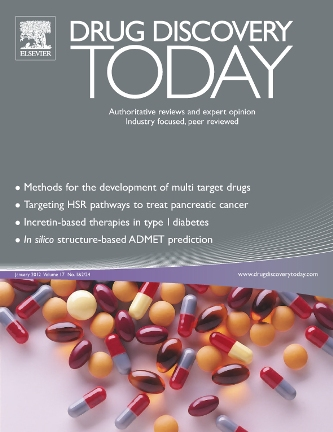抑制 MAT2A 可对抗癌症中的代谢和转录重编程。
IF 6.5
2区 医学
Q1 PHARMACOLOGY & PHARMACY
引用次数: 0
摘要
代谢和转录重编程是致癌的关键标志,是开发靶向抗癌疗法的可利用漏洞。通过控制细胞蛋氨酸(MET)代谢物池的平衡,MET腺苷转移酶2α(MAT2A)调节着代谢过程中的关键步骤和转录的表观遗传控制。研究表明,MAT2A 的异常功能可通过代谢成瘾、转录重构和肿瘤微环境(TME)的免疫调节来驱动恶性转化。此外,MAT2A 能维持 5'-methylthioadenosine phosphorylase(MTAP)缺失肿瘤的存活,使 MTAP 缺失的癌症具有合成致死性,这种基因改变发生在所有癌症中的 15%。因此,对 MAT2A 的药理抑制正逐渐成为对抗肿瘤生长的理想治疗策略。在此,我们回顾了对 MAT2A 生物学的最新见解,重点关注其在 TME 中代谢成瘾和基因表达调控方面的作用,概述了 MAT2A 抑制剂的现状,并着重介绍了 MAT2A 抑制剂作为一种新型抗肿瘤疗法的最新临床进展和机遇。本文章由计算机程序翻译,如有差异,请以英文原文为准。
MAT2A inhibition combats metabolic and transcriptional reprogramming in cancer
Metabolic and transcriptional reprogramming are crucial hallmarks of carcinogenesis that present exploitable vulnerabilities for the development of targeted anticancer therapies. Through controlling the balance of the cellular methionine (MET) metabolite pool, MET adenosyl transferase 2 alpha (MAT2A) regulates crucial steps during metabolism and the epigenetic control of transcription. The aberrant function of MAT2A has been shown to drive malignant transformation through metabolic addiction, transcriptional rewiring, and immune modulation of the tumor microenvironment (TME). Moreover, MAT2A sustains the survival of 5′-methylthioadenosine phosphorylase (MTAP)-deficient tumors, conferring synthetic lethality to cancers with MTAP loss, a genetic alteration that occurs in ∼15% of all cancers. Thus, the pharmacological inhibition of MAT2A is emerging as a desirable therapeutic strategy to combat tumor growth. Here, we review the latest insights into MAT2A biology, focusing on its roles in both metabolic addiction and gene expression modulation in the TME, outline the current landscape of MAT2A inhibitors, and highlight the most recent clinical developments and opportunities for MAT2A inhibition as a novel anti-tumor therapy.
求助全文
通过发布文献求助,成功后即可免费获取论文全文。
去求助
来源期刊

Drug Discovery Today
医学-药学
CiteScore
14.80
自引率
2.70%
发文量
293
审稿时长
6 months
期刊介绍:
Drug Discovery Today delivers informed and highly current reviews for the discovery community. The magazine addresses not only the rapid scientific developments in drug discovery associated technologies but also the management, commercial and regulatory issues that increasingly play a part in how R&D is planned, structured and executed.
Features include comment by international experts, news and analysis of important developments, reviews of key scientific and strategic issues, overviews of recent progress in specific therapeutic areas and conference reports.
 求助内容:
求助内容: 应助结果提醒方式:
应助结果提醒方式:


